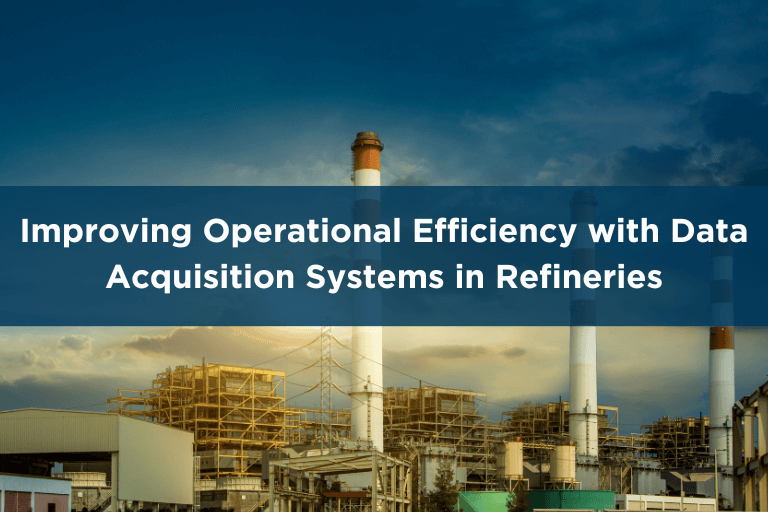How Does a Data Acquisition System Improve Efficiency in Refineries?
As you may know, refineries are required by the Environmental Protection Agency’s (EPA) Refinery Sector Rule (RSR) to prioritize flare minimization, as well as monitor and report emergency flaring events and deviations within as low as a 24-hour time frame. Without a Data Acquisition System (DAS), complying with RSR requirements can be highly difficult. This blog post will walk you through how DAS’s such as StackVision can help refineries both meet these requirements and improve overall operational efficiency. For more information on the RSR and how Data Acquisition Systems for refineries are useful, read How StackVision™ Helps Refineries With RSR Regulations.
Real-Time Monitoring
A DAS enables real-time monitoring of critical parameters such as those that the RSR requires refineries to report. This allows you to quickly identify and address emergency flaring events or related issues and reduce downtime for your refinery. There are several required individual components to be tested daily for refineries, and without a DAS that automates this process, this presents you with daily opportunities for compliance failure. Using the traditional and now outdated Digital Control System (DCS), historian, and spreadsheet method simply does not allow for the required data and timeframes to be measured accurately or quickly enough.
Predictive Maintenance
Another benefit of a Data Acquisition System is that it can help predict potential equipment failures, enabling proactive maintenance measures. Utilizing a DAS for refineries can help minimize unplanned shutdowns and extend the overall lifespan of refinery assets.
Optimized Operations
Data-driven insights provided by DAS can aid in optimizing operational processes. These include adjusting parameters for maximum efficiency, lowering energy consumption, and improving overall process control. Since the Data Acquisition System continuously monitors and calculates these values, operators can control flows and adjust parameters as needed at all times.
Compliance and Reporting
Refineries can be a highly regulated environment to work in, which can be frustrating at times. With a DAS, complying with these regulations is a much less daunting task. The following are some of the compliance challenges that require real-time reporting to meet:
• 15-minute block averages and documentation
• Increased quality control requirements
• Ready access to compliance parameters for operators
• Requirement to report, retain, and make data available
Learn how Calumet Refinery used the StackVision DAS for flare monitoring and compliance with the Refinery Sector Rule (RSR).
Enhanced Safety
How ESC Spectrum Can Help Refineries

Dan Napolitan - Marketing Specialist I
Daniel joined ESC Spectrum in August of 2023 as a Marketing Specialist I. He started this position shortly after graduating from the University of Missouri with a degree in Journalism and Strategic Communications. Prior to working with ESC Spectrum, Daniel gained experience in the digital marketing field doing SEO and keyword research to produce successful organic content. He is now responsible for completing various marketing tasks such as blog writing, social media posts, paid search advertisements, web analytics, and more.


